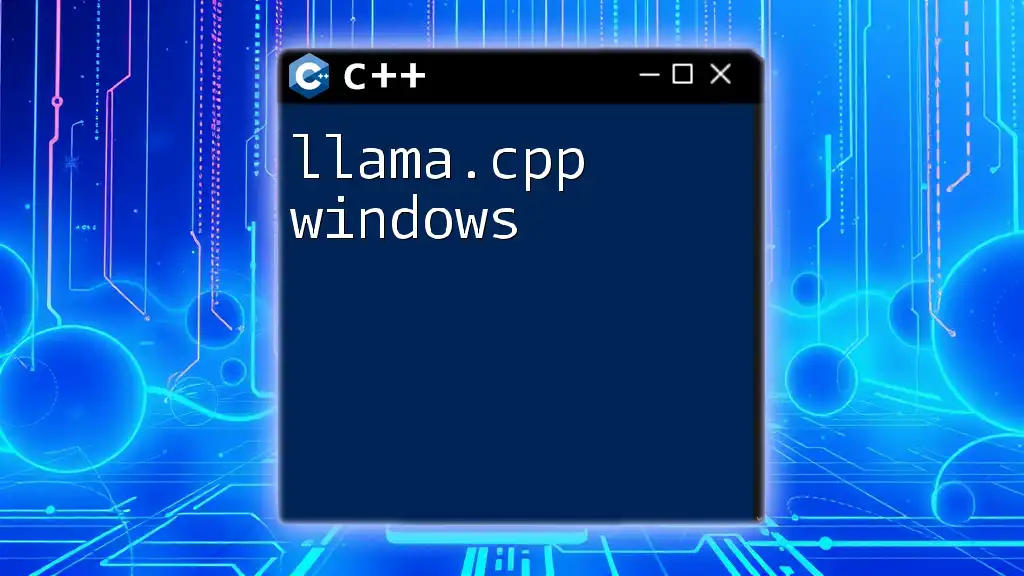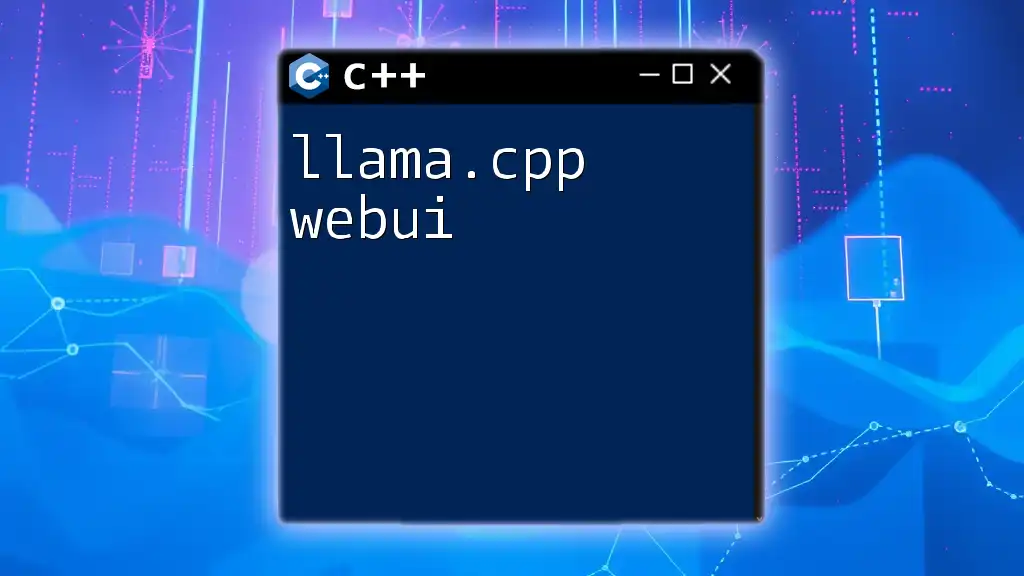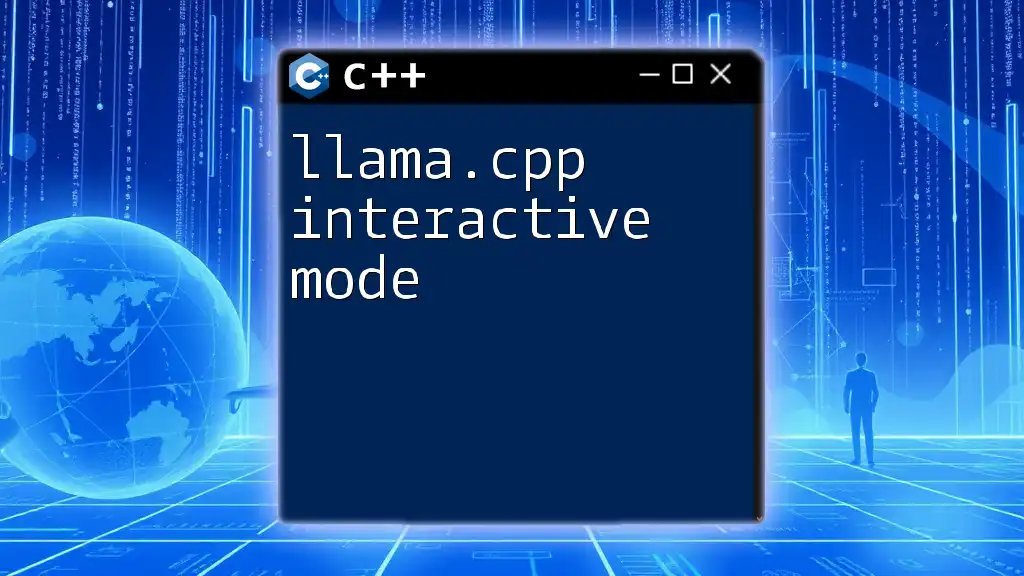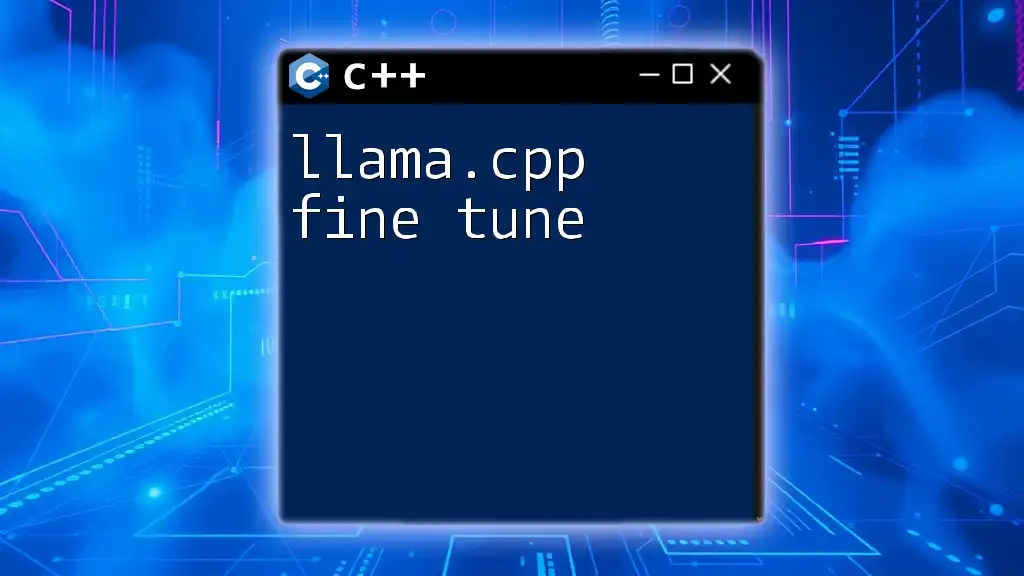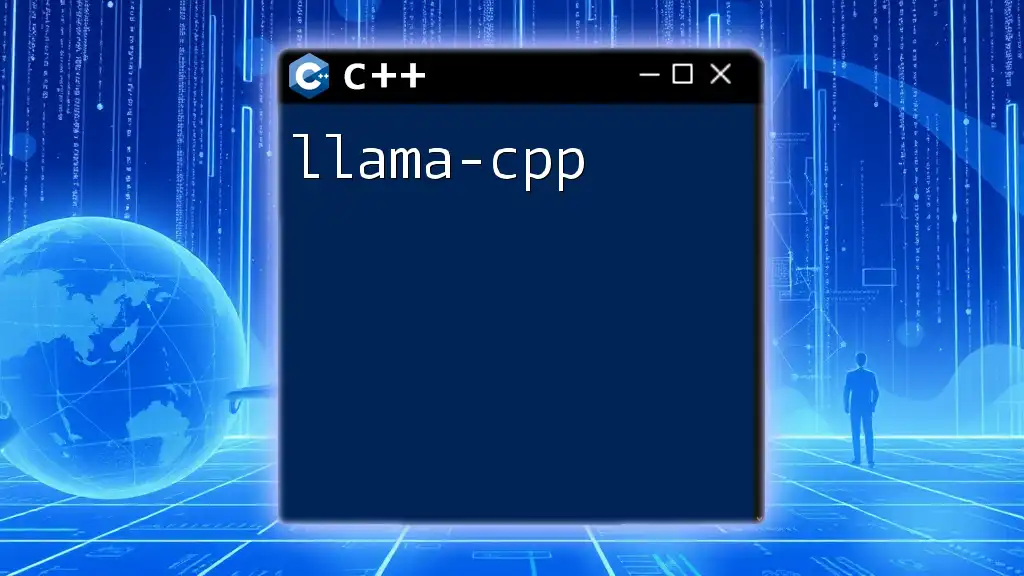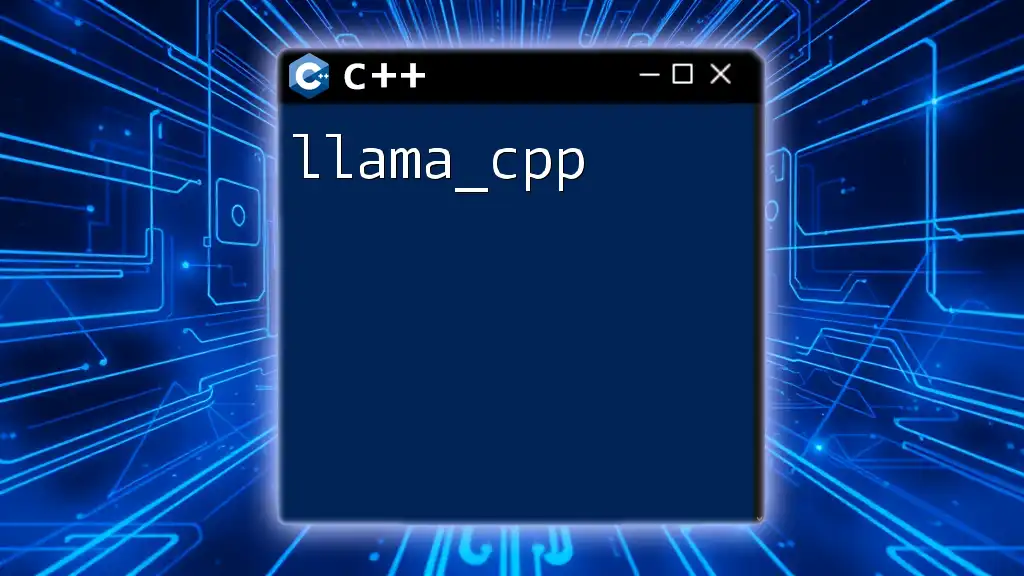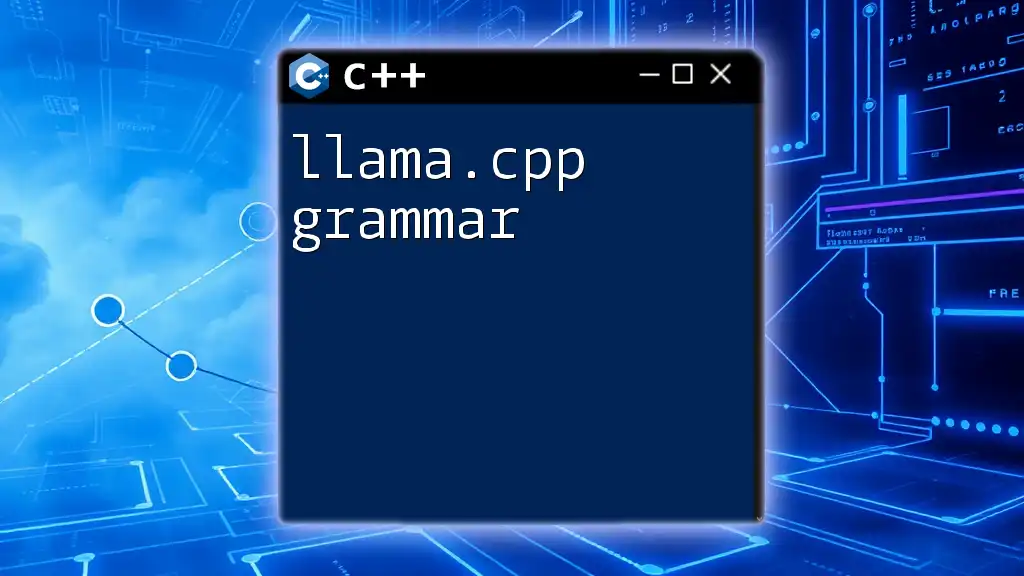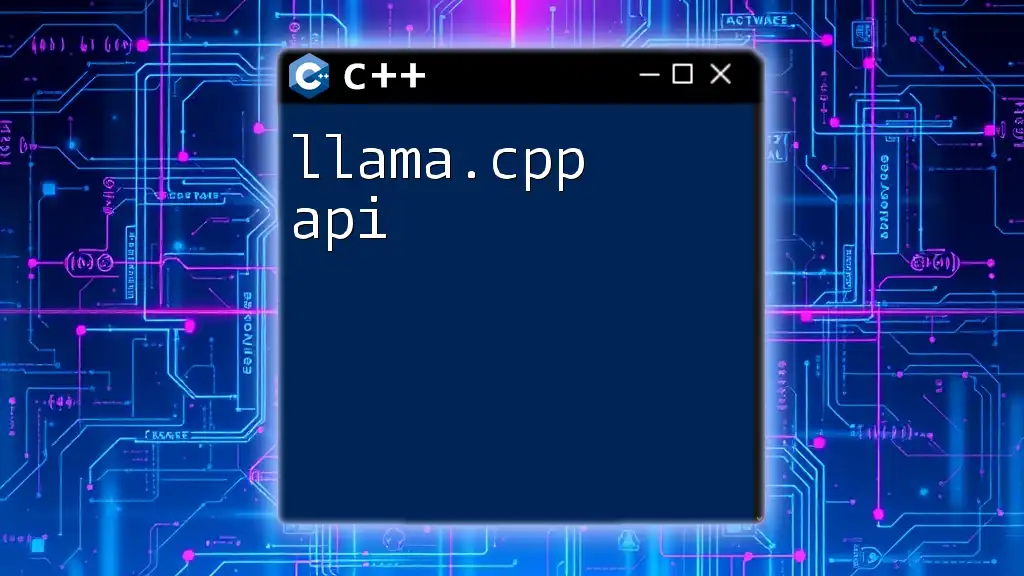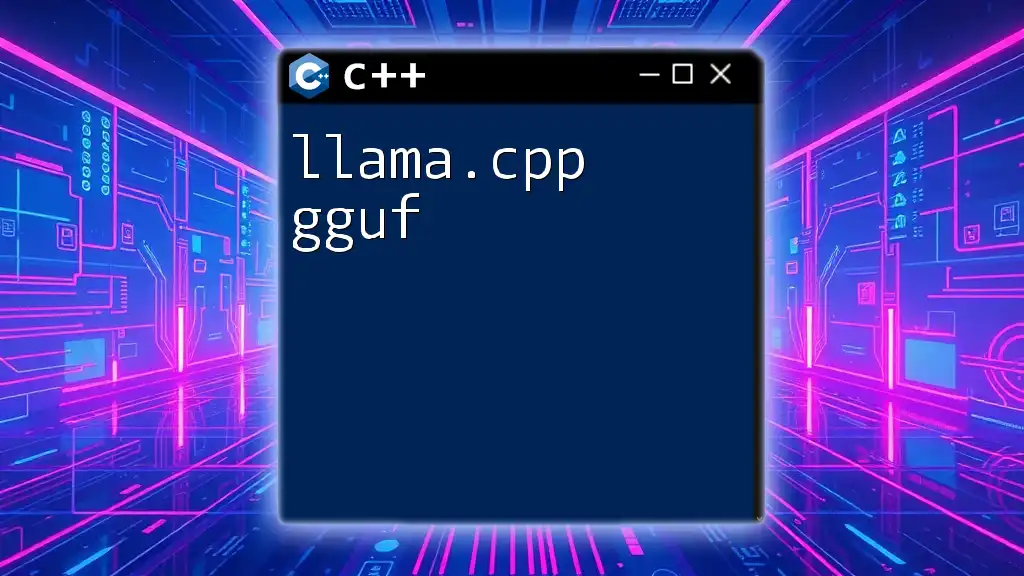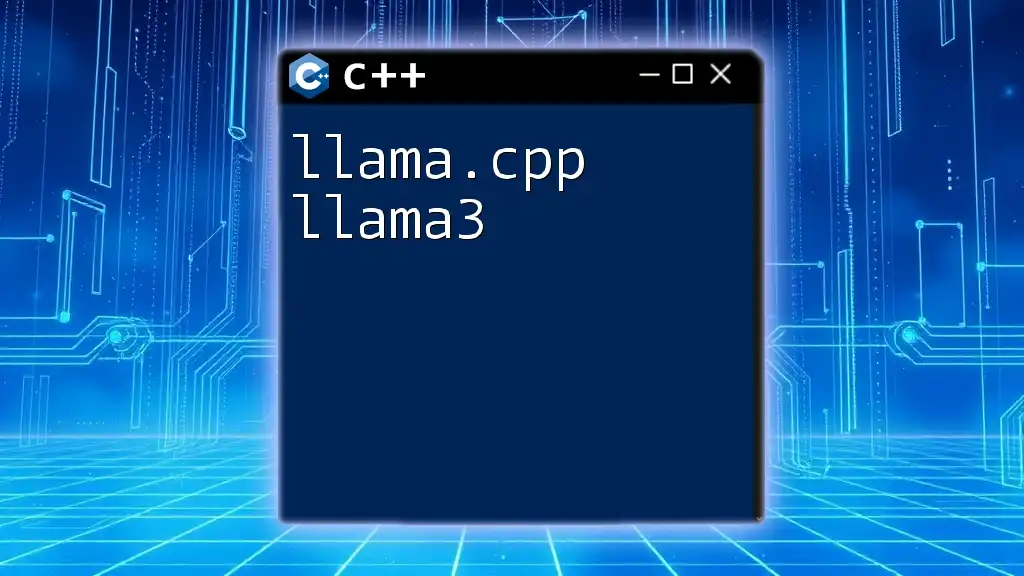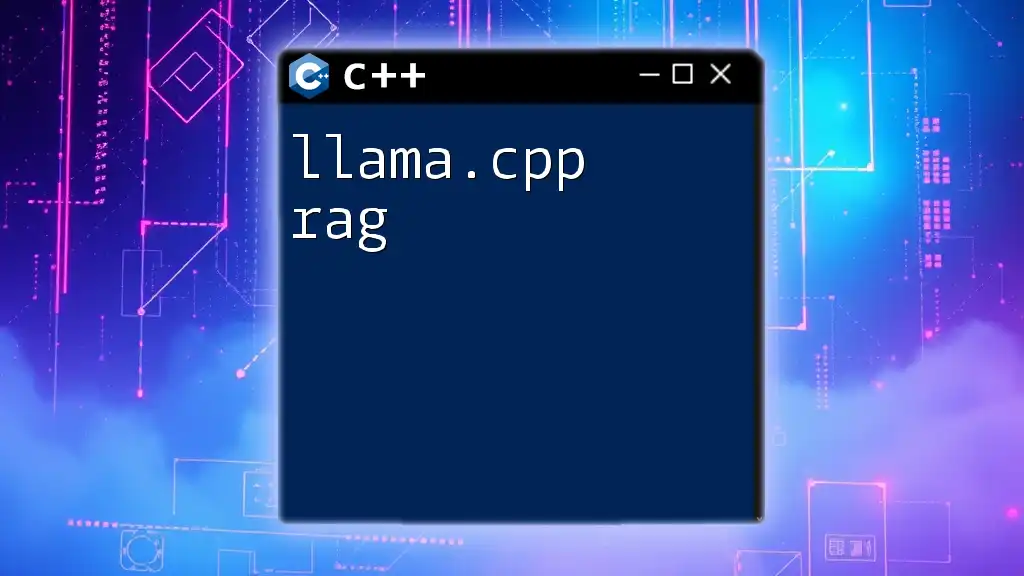The "llama.cpp" on Windows refers to a library or framework for efficiently utilizing C++ commands, often focusing on optimizing performance and simplicity in coding.
Here's a code snippet that demonstrates a basic usage:
#include <iostream>
int main() {
std::cout << "Hello, llama.cpp!" << std::endl;
return 0;
}
Understanding the Basics of Llama.cpp
What is Llama.cpp?
Llama.cpp is a powerful C++ library designed to streamline the development process, making it easier for programmers to implement features quickly and efficiently. Born from the need to simplify complex tasks in C++, Llama.cpp provides a set of tools and utilities that enhance productivity without sacrificing performance.
Benefits of Using Llama.cpp
The integration of Llama.cpp into your C++ projects can yield significant advantages:
- Improved Performance: Llama.cpp is specifically optimized for speed and efficiency, enabling applications to run smoother.
- Enhanced Productivity: With various utility functions and a more straightforward syntax, developers can focus more on crafting the logic of their application rather than the implementation details.
- Flexibility in C++ Applications: Llama.cpp can be easily integrated into most C++ projects, be it small scripts or large-scale applications.
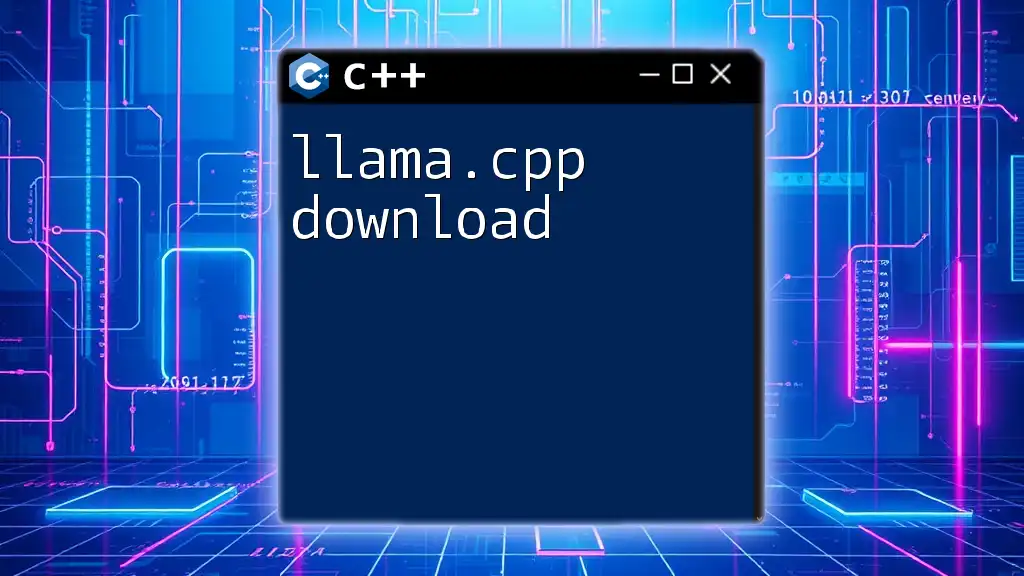
Setting Up Your Windows Environment for Llama.cpp
System Requirements for Llama.cpp on Windows
To ensure a smooth experience, make sure your system meets the following:
- Operating System: Windows 10 or higher is recommended.
- Processor: A minimum of dual-core processor.
- RAM: At least 4GB; 8GB is recommended for more extensive applications.
- Disk Space: Enough space for development tools and libraries.
Installing Necessary Tools
Before diving into Llama.cpp, it's crucial to set up your development environment:
- C++ Compiler: You’ll need a compiler like MinGW or Visual Studio’s built-in compiler to build your code.
- Integrated Development Environment (IDE): For convenience, use a robust IDE such as Visual Studio or Code::Blocks.
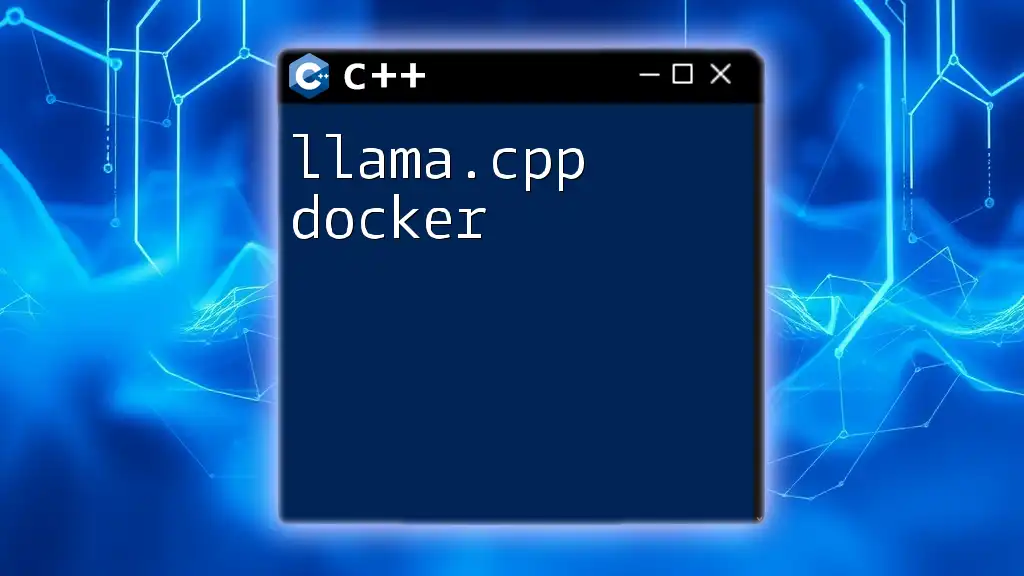
How to Install Llama.cpp on Windows
Step-by-Step Installation Process
Download Llama.cpp
First, head to the official repository. You can find Llama.cpp on GitHub or its designated website. Download the repository as a ZIP file or clone it using the command:
git clone https://github.com/username/llama.cpp.git
Installing Dependencies
Llama.cpp may require certain libraries to function optimally. Ensure you have the following installed:
- C++ Standard Library: This should already be included with your C++ compiler.
- Boost Libraries: If your project requires additional functionality, install Boost. The command to install it may vary based on your package manager.
# Example command to install Boost via vcpkg
vcpkg install boost
Configuring Your Development Environment
Once you have downloaded and installed the necessary tools, configuring your IDE is the next step. Ensure you set your environment variables correctly to point to Llama.cpp and any dependencies.
In Visual Studio, you can configure your project settings to include the necessary directories:
- Open the project properties.
- Navigate to C/C++ -> General -> Additional Include Directories.
- Add the path to the Llama.cpp include folder.
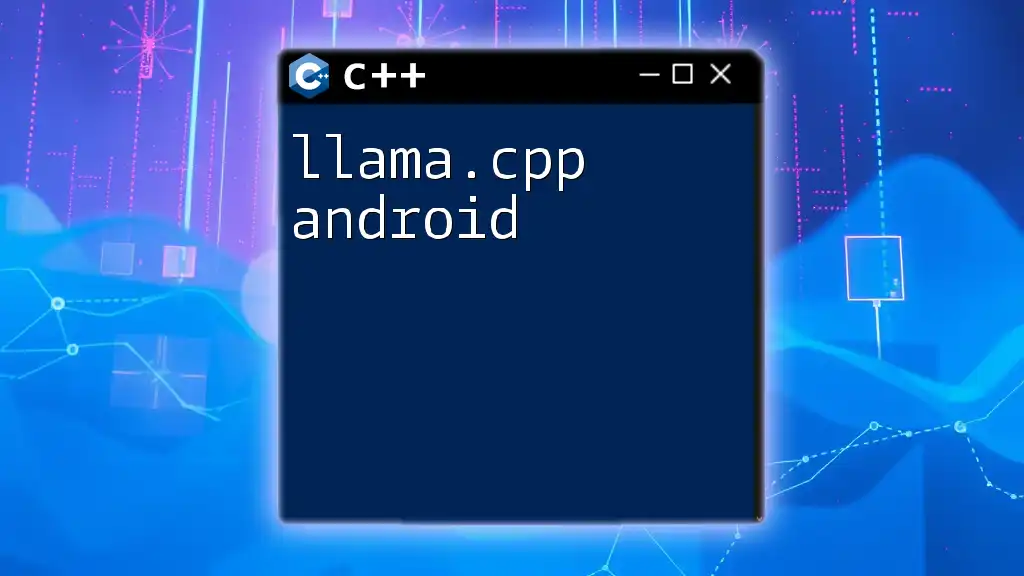
Writing Your First Llama.cpp Program
Structure of a Llama.cpp Program
A typical Llama.cpp program consists of several key components:
- Header Files: Required library headers are included at the beginning.
- Main Function: The entry point of your program where execution begins.
Example: A Simple Llama.cpp Program
Here’s a straightforward example that highlights how easy it is to get started with Llama.cpp:
#include <llama.h>
int main() {
Llama llama;
llama.greet();
return 0;
}
Walkthrough of the Example Code
In this snippet, we include the Llama header, which provides access to the Llama class. Inside the `main` function, we create an instance of the `Llama` class and invoke the `greet` method, demonstrating a simple method call.
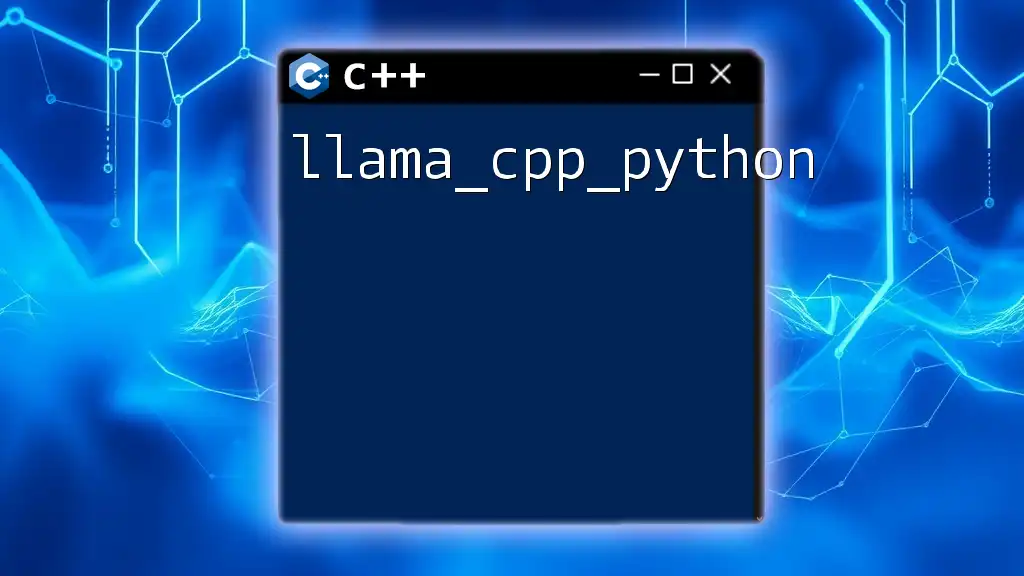
Debugging and Troubleshooting Llama.cpp on Windows
Common Errors During Installation
When installing Llama.cpp or configuring your development setup, you might encounter common errors such as missing dependencies or incorrect paths. Ensure to check:
- Missing Libraries: If you receive an error regarding missing headers or libraries, revisit the installation steps to confirm all necessary components are in place.
- Path Issues: Incorrect paths in your IDE’s settings can lead to compilation errors. Double-check all included directories.
Debugging Your Code
Debugging in C++ can be challenging but is critically important. Most IDEs, including Visual Studio, come with robust debugging tools. Use breakpoints to halt execution and inspect variable states.
Additionally, code analysis techniques can help identify potential issues. Pay attention to compiler warnings, as these can often point out logical errors or misused functions.
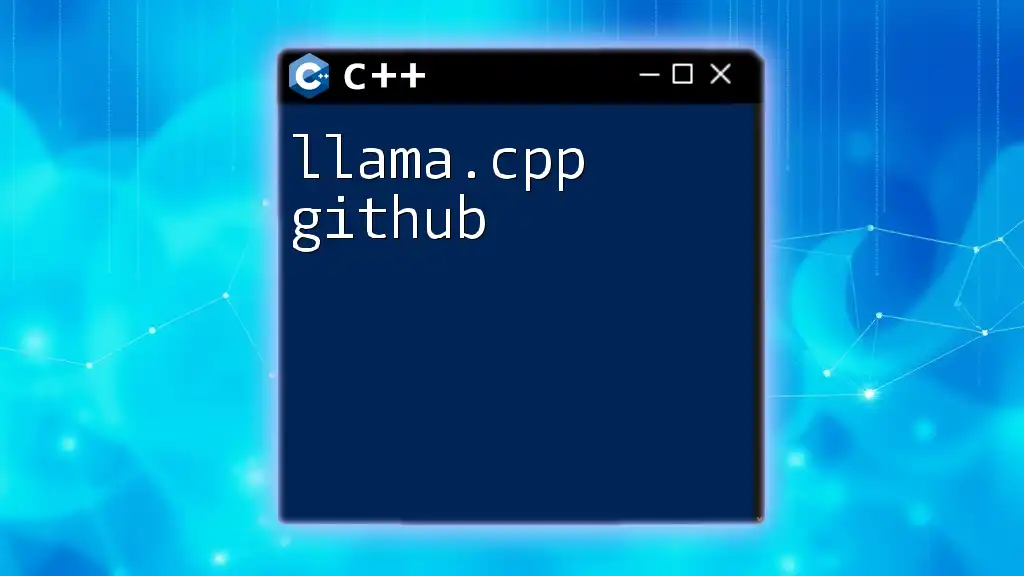
Advanced Usage of Llama.cpp
Optimizing Performance in Llama.cpp
To get the most out of Llama.cpp, embracing best practices in coding is crucial. Here are some tips:
- Minimize Memory Usage: Use appropriate data types and avoid unnecessary object duplication.
- Leverage Compiler Optimizations: Make use of preprocessor directives to enable optimization features in your compiler.
Performance Comparison
Using performance profiling tools can showcase the efficacy of Llama.cpp. Consider comparing run times between traditional C++ implementations and those utilizing Llama.cpp functions to highlight enhancements.
Extending Llama.cpp Functionality
As you become more comfortable, consider exploring how to extend the capabilities of Llama.cpp. This can include:
- Adding custom functions suited to your specific needs.
- Incorporating third-party libraries, allowing you to build more complex applications seamlessly.
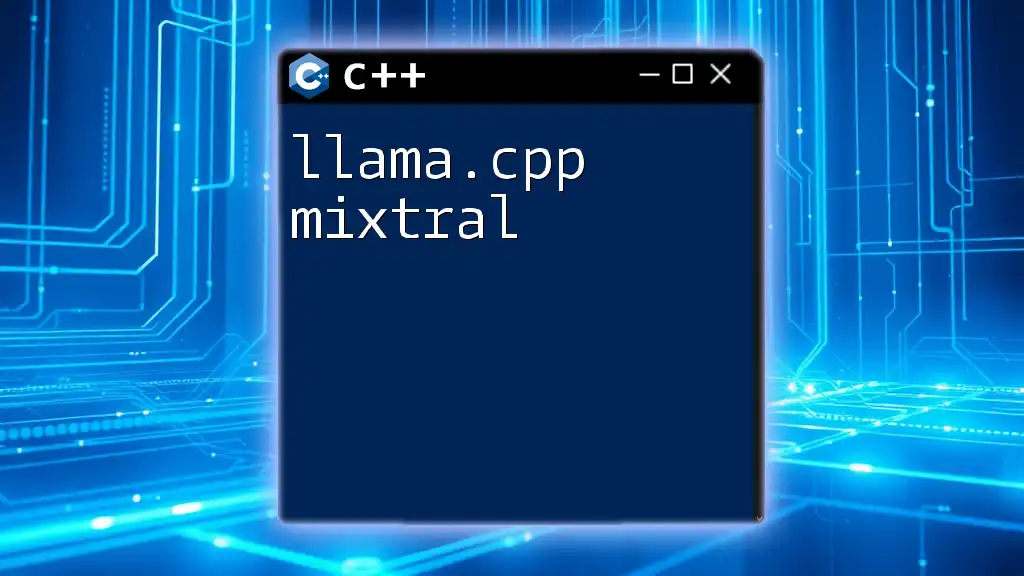
Conclusion
In summary, adopting Llama.cpp for your C++ projects on Windows can enhance your coding experience through improved performance and productivity. With the installation process clearly outlined and your first program written, you are now equipped to explore the extensive functionalities that Llama.cpp offers.
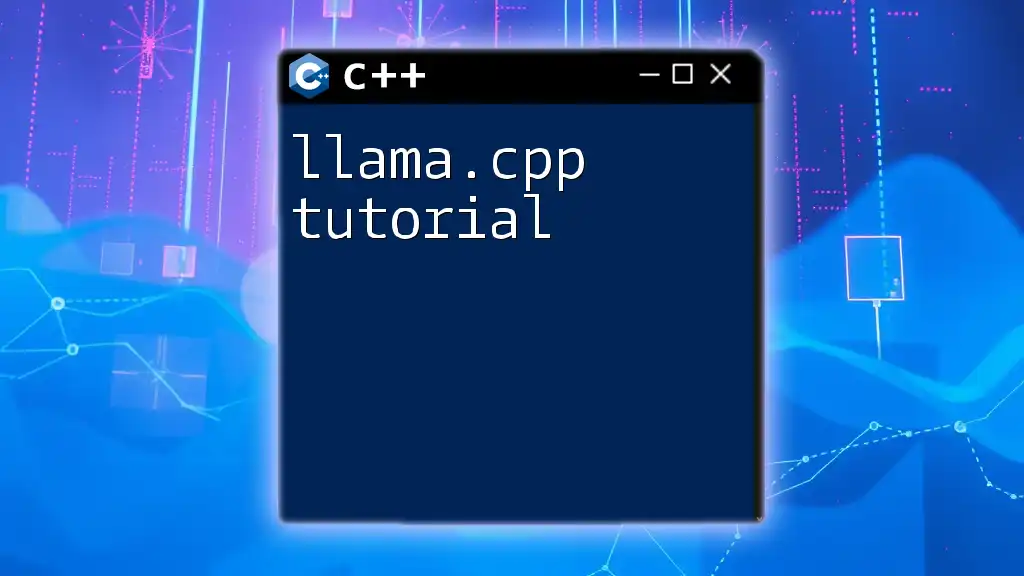
Additional Resources
For deeper learning, refer to the official Llama.cpp documentation and engage with the active community forums. These resources can provide you with up-to-date information and support.
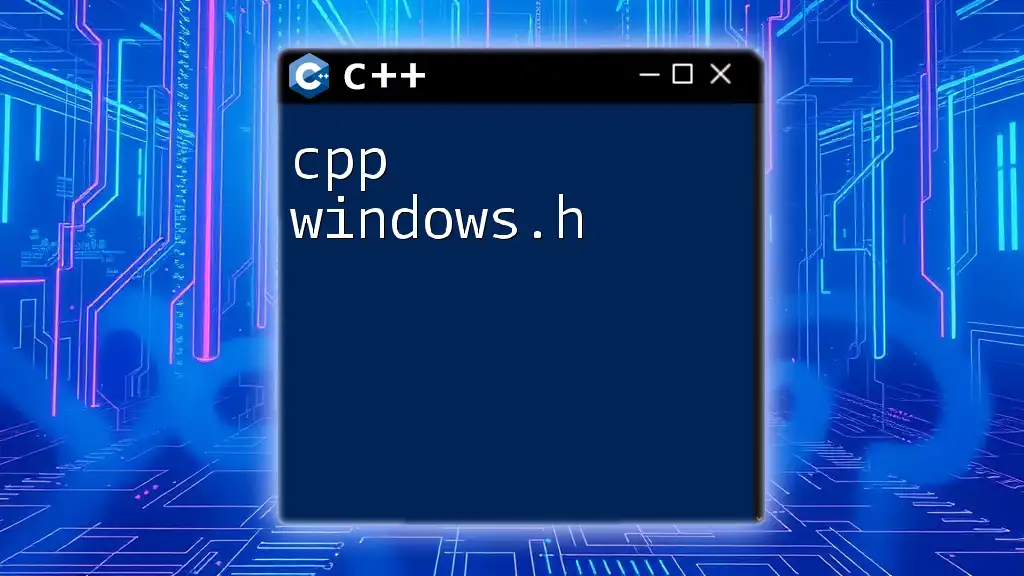
FAQs about Llama.cpp on Windows
What is the best IDE for Llama.cpp on Windows?
Visual Studio is highly recommended for its features and ease of use.
Can I use Llama.cpp in existing C++ projects?
Absolutely! Llama.cpp can be integrated into new or existing projects without hassle.
What are the limitations of Llama.cpp on Windows?
While Llama.cpp is powerful, familiarize yourself with its documentation to understand its constraints related to compatibility and performance on specific Windows systems.
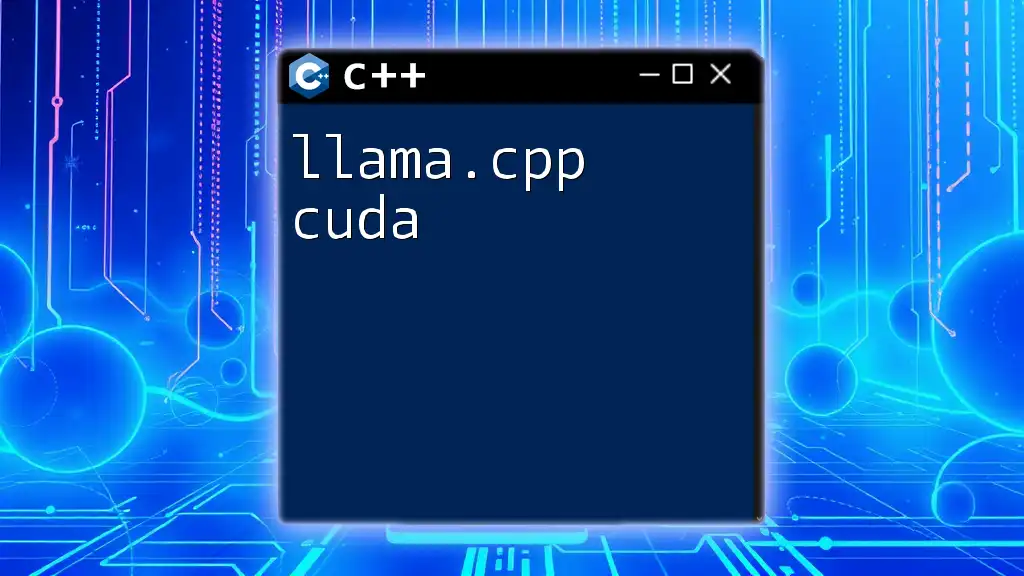
Call to Action
We encourage you to experiment with Llama.cpp and share your experiences. Join our workshops and tutorials to delve into more advanced topics and become proficient in using Llama.cpp effectively!

